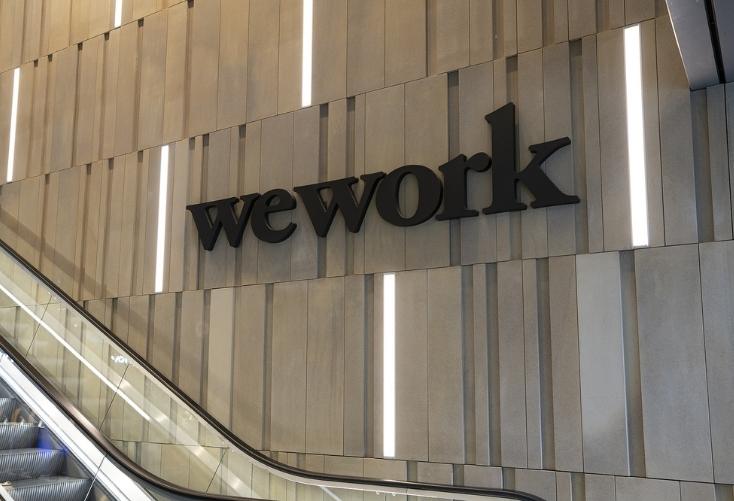Hand selected flexible workspace news from the most reliable sources to keep you ahead of the pack. We find all the latest news, so you don’t have to. Morning and afternoon updates. Stay in the know.
Here’s what you need to know today:
- WeWork Reveals Business Update
- UK Workers Want To Return To Offices Outside Of The City
- The Emerging Head Of Remote Role
WeWork Reveals Business Update
WeWork has released a business update ahead of its efforts to go public via merging with a special purpose acquisition company.
The company’s “Business Update on Sales Momentum, Accelerating Recovery” revealed that the company is seeing an increase of desk sales and occupancy due to the pace of vaccine distribution.
WeWork’s update focused on non-GAAP (Generally Accepted Accounting Principles) and self-defined metrics. The firm stated that its portfolio of 767 locations across 38 countries saw its occupancy grow from 50% in March to 53% in May.
It added that it is continuing its franchising efforts and other partnerships. For instance, it recently “announced a joint venture with SoftBank Latin America Fund that provides SoftBank Latin America Fund with the exclusive right to operate the WeWork brand in Argentina, Brazil, Chile, Colombia and Mexico.”
Despite this slight growth, some experts are still skeptical about the company’s future.
Among all this information, there was no look into specific dollar amounts, GAAP data and, more notably, no clear path towards profitability or financial sustainability.

UK Workers Want To Return To Offices Outside Of The City
A new survey from Clockwise has found that the majority of Gen Z workers may prefer to work in an office.
This revelation comes as the UK government weighs whether to grant workers the right to work from home permanently. This proposal would prevent employers from forcing staff to return to the office unless it is essential.
However, the survey finds that 30% of respondents miss the socialization of the workplace, while some are having trouble separating their professional and personal lives.
Additionally, 71% stated that the sense of community in an office makes for a more productive workforce.
Although many Gen Z and Millennial workers expressed wanting to return to the office, the survey noted that this does not make their return to cities a necessity. In fact, two-third of Gen Z professionals said they are staying in the suburbs after relocating out of urban areas during the pandemic.
This highlights the importance of companies incorporating regional and suburban hubs so employees who have moved have an office to come into, without a long commute.
In fact, 73% of respondents said they would prefer a local satellite office to prevent lengthy commutes.
“The trend towards regionality, where people want to work and set up businesses has been a long time coming, and this has been hugely accelerated by the pandemic,” said Alex Brunner, COO of Clockwise. “These survey results vindicate our approach of focusing primarily on the cities outside of the usual business centres.”

The Emerging Head Of Remote Role
Companies have come to realize the necessity for remote working positions, but who takes the role of managing this new branch of the workforce?
Some organizations are addressing this by introducing a new role called “Head of Remote” to handle the ins and outs of distributed workers.
To help companies who are interested in introducing this new role, the company Remote recently released a white paper that helps organizations decide whether it may be necessary for their operations.
The position of Head of Remote falls into two categories: an internal and external advocate.
The internal advocate would be responsible for providing an equal experience for employees that work both on-site, remotely or both. They would work closely with HR and Operations functions.
“The Head of Remote is not just responsible for creating a good experience for people working from home in one country,” said Job van der Voort, CEO of Remote. “Instead, the Head of Remote must account for all the permutations of remote work, which can include people in multiple time zones and people with different lifestyles.”
The external advocate’s responsibility would be the representative for staffers and help the company promote itself as a future of work innovator.
This type of role mostly involves leveraging the company’s remote policies and products to help boost business, and works closely with marketing, sales and human resources teams.




 Dr. Gleb Tsipursky – The Office Whisperer
Dr. Gleb Tsipursky – The Office Whisperer Nirit Cohen – WorkFutures
Nirit Cohen – WorkFutures Angela Howard – Culture Expert
Angela Howard – Culture Expert Drew Jones – Design & Innovation
Drew Jones – Design & Innovation Jonathan Price – CRE & Flex Expert
Jonathan Price – CRE & Flex Expert













